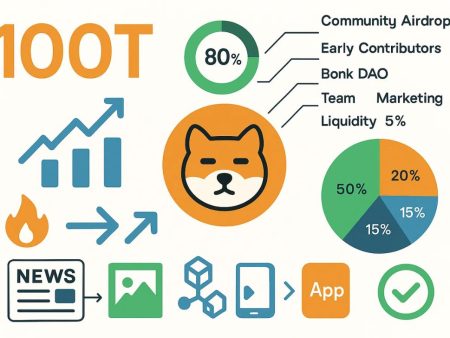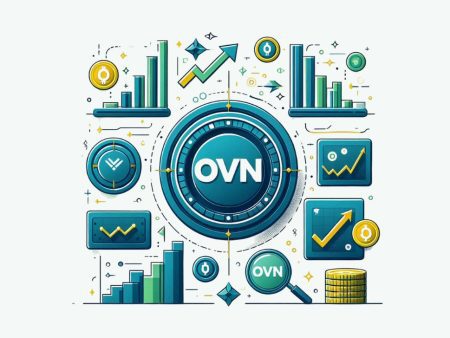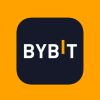Blockchain in business, with its ability to enhance security, transparency, and efficiency, is increasingly gaining popularity across various industries. You may be wondering how businesses are using blockchain beyond cryptocurrency. The following article from TopCoin9 will help you understand more clearly.
Blockchain in Business

Blockchain in business refers to the integration of decentralized ledger technology into various business functions, creating a secure, transparent, and efficient way to track and manage data. Unlike traditional databases, blockchain offers the unique ability to store data across a network of computers, ensuring that no single party has control over the data. This innovation is quickly becoming a game-changer, offering solutions to longstanding challenges in several industries, from supply chain management to financial transactions.
Businesses are increasingly recognizing the value of blockchain in enhancing operational efficiencies and reducing risks. By utilizing this technology, companies can securely manage information, reduce fraud, and streamline processes, making it a valuable tool beyond just cryptocurrency trading.
As more industries adopt this decentralized approach, discussions around the future of blockchain are becoming more relevant than ever. Now that we’ve explored the role of blockchain in business, let’s dive into how companies are utilizing this technology to innovate and improve their operations.
How Businesses Use Blockchain

Blockchain technology is transforming industries beyond cryptocurrency, offering businesses innovative solutions to enhance transparency, security, and efficiency. Let’s explore how businesses use blockchain to revolutionize their operations and create new opportunities.
Supply Chain Management
One of the most significant uses of blockchain in business is in the management of supply chains. Blockchain provides a transparent and immutable record of transactions, allowing businesses to track products and goods from their origin to the end consumer. This ensures the authenticity of products and helps prevent fraud. Major companies like Walmart and IBM have already implemented blockchain-based systems to enhance the traceability and transparency of their supply chains, particularly in industries such as food, pharmaceuticals, and luxury goods.
With supply chain management benefiting from blockchain, it’s important to explore how blockchain security and data management can further enhance operational efficiency.
Data Security and Management
Blockchain technology is increasingly being used to secure sensitive data and protect against cyberattacks. In industries where data breaches and unauthorized access can have severe consequences, blockchain provides a decentralized and tamper-proof solution. By storing data across a distributed network, businesses can ensure that information is secure, accessible only to authorized parties, and resistant to hacking or unauthorized modifications. This is especially useful in sectors such as healthcare, finance, and legal services, where protecting customer data is of utmost importance.
As data security and management are crucial for blockchain’s success, let’s now dive into how authentication and verification processes ensure the integrity of transactions.
Authentication and Verification
Blockchain offers a reliable way for businesses to authenticate and verify documents, contracts, and credentials. Companies can use blockchain to store important documents such as legal contracts, intellectual property rights, and certifications, ensuring that they are securely stored and cannot be altered. This technology is being applied in sectors such as real estate, education, and government, where verification of credentials and documents is a critical function.
Following authentication and verification, the role of blockchain in payments and transactions becomes even more significant, ensuring secure and efficient exchanges.
Payments and Transactions
The financial industry has been one of the early adopters of blockchain technology, particularly for payments and cross-border transactions. Blockchain allows for faster, more secure, and cost-effective transactions without the need for intermediaries like banks. Ripple, Stellar, and other blockchain-based payment systems are revolutionizing international payments by reducing fees and transaction times. These systems are now being adopted by businesses around the world to simplify financial transactions, especially in industries like banking and e-commerce.
With a clearer understanding of how businesses use blockchain, it’s important to look at some real-world applications and how they’re changing industries.
Real-World Blockchain Applications

Real-world blockchain applications are reshaping industries by providing practical solutions that enhance transparency, security, and efficiency. Let’s take a closer look at some of the most impactful blockchain use cases in today’s business landscape.
IBM Food Trust
IBM Food Trust is a blockchain-based platform that helps food companies trace the journey of their products, from farm to table. The platform allows consumers and businesses to verify the origin of food, ensuring that it meets quality standards and safety regulations. By using blockchain, companies can significantly reduce food recalls, improve safety, and increase consumer trust. Walmart has already implemented this solution in some of its stores, allowing customers to trace the origin of fresh produce.
IBM Food Trust is revolutionizing the food industry by using blockchain to ensure transparency and traceability across the supply chain. Next, let’s explore how blockchain is being applied in the diamond industry with De Beers.
De Beers and Blockchain for Diamonds
The diamond industry has long struggled with issues of conflict diamonds and lack of transparency. De Beers, one of the largest diamond companies in the world, has turned to blockchain to track diamonds through every stage of the supply chain. By using blockchain technology, De Beers ensures that each diamond is ethically sourced and certified as conflict-free. This application not only improves transparency but also builds consumer confidence in the diamond industry.
De Beers is leveraging blockchain technology to guarantee the authenticity and ethical sourcing of diamonds, enhancing trust in the industry. Now, let’s look into the impact of blockchain on healthcare and medical records
Healthcare and Medical Records
In healthcare, blockchain technology is being used to secure medical records and ensure their integrity. Medical records are often fragmented across multiple systems, making it difficult for healthcare providers to access accurate and complete information. Blockchain can provide a secure, interoperable solution for storing and sharing medical records, ensuring that patients’ data is always up to date and accessible. This is particularly valuable in cases where patients seek treatment from multiple healthcare providers.
Blockchain is transforming healthcare by offering a secure and efficient way to manage and share medical records, improving patient care. Next, we’ll examine how blockchain is being utilized in voting systems.
Blockchain in Voting Systems
Blockchain is also being explored as a solution for secure and transparent voting systems. Traditional voting systems are often criticized for their vulnerability to fraud and manipulation. Blockchain can provide a secure, tamper-proof voting platform, ensuring that each vote is counted accurately and transparently. Several governments and organizations are experimenting with blockchain-based voting systems to increase the security and trustworthiness of elections.
In the context of transparency and decentralization, it’s impossible to ignore the growing relationship between blockchain and Web3, which further extends blockchain’s impact into decentralized applications, identity, and the future of the internet.
Benefits of Blockchain for Businesses

The benefits of blockchain for businesses are vast, offering improvements in transparency, cost-efficiency, security, and operational speed. Let’s explore how this transformative technology can drive growth and innovation in various industries.
- Transparency and Traceability: Blockchain provides a transparent record of transactions, making it easy for businesses and consumers to trace the origin of products or services. This transparency helps reduce fraud and ensures accountability.
- Cost Savings: By eliminating intermediaries and reducing administrative costs, blockchain can help businesses save money in various processes, including payments, supply chain management, and contract verification.
- Increased Security: Blockchain’s decentralized and immutable nature ensures that data is secure and resistant to tampering. This is particularly important in industries where data breaches can have severe consequences.
- Improved Efficiency: Blockchain streamlines business processes by reducing the need for manual verification and reconciliation. This leads to faster transactions, reduced errors, and increased efficiency across operations.
While blockchain brings numerous advantages, businesses also face several challenges when integrating this technology into their operations
Challenges of Blockchain in Business
Despite its potential, blockchain adoption in business faces several challenges:
- Implementation Costs: Integrating blockchain into existing systems can be costly and time-consuming. Businesses need to invest in the necessary infrastructure and training to successfully implement blockchain solutions.
- Regulatory Uncertainty: As blockchain technology continues to evolve, governments and regulatory bodies are still grappling with how to regulate its use. Uncertainty around legal and regulatory frameworks may slow down widespread adoption.
- Scalability Issues: While blockchain offers many advantages, its scalability is still a challenge. As the volume of transactions grows, maintaining the speed and efficiency of blockchain networks can become more complex.
Blockchain in business is truly a game-changer, unlocking new levels of transparency, security, and efficiency for industries across the board. As businesses continue to explore its potential, the opportunities for innovation and growth are limitless. Dive deeper into the world of blockchain and discover how it’s shaping the future visit our knowledge hub at TopCoin9 today!

As a certified blockchain security expert with over 8 years in cybersecurity, James Anderson specializes in auditing smart contracts and identifying vulnerabilities in DeFi protocols. His expertise ensures that TopCoin9 delivers reliable insights on blockchain security and risk management.
Email: [email protected]












